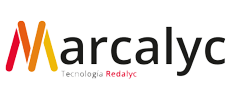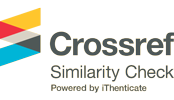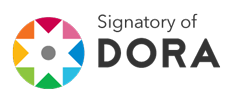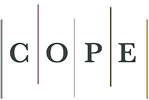About the Journal
Approach and Scope
Prohistoria - Historia, políticas de la historia is a space for the dissemination of academic knowledge produced in Argentina and around the world.
The journal welcomes original articles with research results related (including, but not limited) to issues approached from the most current perspectives within the discipline.
Although it can legitimately be considered a generalist journal, the Editorial Board guides on priority topics for each selection process. These are publicly disseminated through calls for the academia.
ISSN
Printed version: ISSN 1514-0032
Online version: ISSN 1851-9504
DOI: https://doi.org/10.35305/prohistoria
Format and frequency
Between 1997 and 2009, Prohistoria was published annually on paper. Since 2010, the journal has only been published biannually online, in June and December.
Sections
ARTICLES
This section aims at publishing original articles with research results related (including, but not limited) to issues approached from the most current perspectives within the discipline.
The journal is open to submissions; nevertheless, those research results addressing the topics defined by the Editorial Board in each call are given preference in the selection process.
FROM RELIABLE SOURCES
This section is devoted to publishing short original articles that include critical research on written documents or document series (whether or not they include the transcription of unpublished documents) and comments on recently found document or audiovisual archives.
BOOK REVIEWS
This section is intended for critical reviews of books whose topics are in accordance with the profile of the journal. Selection criteria:
- The book reviewed cannot be older than 2 (two) years, to be considered from the date the review is submitted.
- No reviews of books published by Prohistoria Ediciones (Rosario) will be accepted.
Peer-review process
In the first place, the works submitted must follow the guidelines and a style guide (see the section "Submissions") and are required to be original; must not to be under consideration for publication elsewhere and must be approved by the Editorial Committee before being sent to the double-blind evaluation process.
The Editorial Committee undertakes to inform the authors whether or not their proposals were selected for the external peer-review process within 60 days of reception.
The works selected by the Editorial Committee are sent to two or more reviewers holding an appropriate academic position and competent in the topic of the proposal. In the selection of external reviewers, those who belong to the same research centers or work teams as the authors, who collaborate or have recently collaborated with the authors in the same projects will be excluded. Likewise, reviewers should withdraw in case of conflict of interest or financial interest in the proposal.
The system employed is the "double-blind" (both the reviewer and author’s identities are concealed from one another).
The reviewer counts on 30 (thirty) days to carry out their analysis, after which they must suggest one of the following options:
(1) accept the article without modifications;
(2) accept it with some minor modifications;
(3) accept it provided that the modifications are incorporated;
(4) reject the article.
In case the two reviewers agree on rejecting the manuscript, the Editorial Committee shall reject the publication request.
The article will be considered for publication if it is accepted by the two reviewers (options 1 or 2).
If there are considerable differences between the reviewers, the opinion of a third party will be requested.
When one or both reviewers have requested or suggested modifications, the authors must introduce them in their written manuscript and a note addressed to the Editorial Committee shall be attached, summarizing the content and location of the requested and introduced modifications, as well as a justification for the modifications that, whatever the reason, the authors decided not to include. The deadline to introduce the modifications and send the note cannot exceed 30 days.
The results of the review process will be indisputable in all cases.
The entire process may take approximately 150 to 180 days.
In case the article has been accepted, we suggest the author include in the first footnote a note of appreciation to the anonymous reviewers who took part in the process.
Policy on Open Access
Prohistoria endorses the Open Access model by which the contents of scientific publications are available in full text, free and open online, without temporary embargoes and by which editorial production costs are not borne by the authors. This policy seeks to break the economic barriers that create inequities both in access to information and in the publication of research results. It is based on the principle that offering the public free access to research produces a greater global exchange of knowledge.
Therefore, Prohistoria does not charge the authors any fee for reviewing, correcting, editing, publishing and distributing their works. It also undertakes to disseminate the published works in Open Access indexing services and in the different repositories that have adopted the Open Archives Initiative-Protocol for Metadata Harvesting (OAI-PMH).
In addition, Prohistoria does not retain Copyright, so the final published versions shall be made available to the authors for dissemination in institutional repositories, personal blogs or by any other electronic means. The only condition is to mention the original source of publication, in this case Prohistoria.
Prohistoria publishes its material under a Creative Commons 4.0 Attribution - Non-Commercial - Share Alike license.
(BY-NC-SA) http://creativecommons.org/licenses/by-nc-sa/4.0/
Protocol for Metadata Harvesting
Prohistoria incorporates an OAI-PMH (Open Archives Initiative – Protocol for Metadata Harvesting) interface that allows the exchange and dissemination of its metadata.
Protocol: OAI-PMH Version 2.0
Metadata formats: Dublin Core; MARC; MARC21; RFC1807
Path for harvesters: https://ojs.rosario-conicet.gov.ar/index.php/prohistoria/oai
Policy on Plagiarism
Given the limitations of automatic plagiarism detection software in Spanish language, and in order to deal with broader aspects that are considered as plagiarism practices (translations, fragmentation of results or “salami slicing”, duplication, among others), the journal has implemented a specific procedure to avoid them:
- Upon submission, authors are requested to declare that their articles have not been published before, nor they are under consideration for publication elsewhere. In addition, they are requested to declare that they are complying with the Instructions for Authors, which state that the articles must be original.
- Upon reception ─and prior to starting the review process─, Internet search tools are used in order to track down other works by the authors and compare the title, abstract fragments, the “method” section and the results of the article submitted for review, so as to verify originality and avoid plagiarism practices.
- Upon submission for peer review, reviewers are also requested to pay attention to possible signs of plagiarism, since they are the ones who know the sources and literature on the topic.
Practices considered by the journal to be plagiarism are listed and explained in the "Statement of Ethics and Negligence" (see Ethics Statement tab).
Code of Ethics
Prohistoria adheres to the best practices for journal editors and publishers established by the Committee on Publication Ethics (COPE): https://publicationethics.org/core-practices
History of the Journal
Prohistoria is a scientific journal conceived by a group of professors, researchers and students from the National University of Rosario (UNR) in September 1996. This publishing device was created independently and without university financing. From then on, colleagues from different universities in the country and abroad have joined its Editorial Board and Committee.
Since 2013, the core of the journal's daily work –its Editorial Board– has been enriched as colleagues from the National University of Córdoba, the National University of General San Martín and the National University of La Plata have joined the researchers and professors of the UNR. Some of them are researchers for the National Scientific and Technical Research Council (CONICET). Since 2018, this journal is hosted in OJS.
From its beginning, the purpose of the journal has been to disseminate basic and historiographical research studies as well as to promote disciplinary and interdisciplinary debates.
This journal stands out because it has managed to publish many works by early career researchers alongside renowned authors without compromising its quality criteria.


















